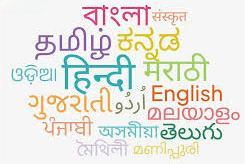

By Sunil Garodia
First publised on 2025-06-24 06:03:37
Union Home Minister Amit Shah's recent claim that English speakers in India will soon "feel ashamed" has stirred a fierce debate about language, identity, and cultural revival. Made at the launch of a book and in the context of promoting Prime Minister Narendra Modi's "Panch Pran" initiative, Shah's comment was positioned as part of a broader effort to decolonize Indian governance and society by reclaiming Indian languages.
While Shah's emphasis on restoring the primacy of Indian languages in education, administration, and public life is not without merit, his framing - suggesting shame for English speakers - has drawn sharp criticism. English, far from being a colonial residue alone, has become India's lingua franca. In a nation of staggering linguistic diversity, it often functions as a neutral bridge language, particularly in regions like the Northeast and South India. For many, it is also a crucial gateway to employment, global communication, and academic advancement.
Critics argue that vilifying English reflects a reductive understanding of India's pluralistic ethos. English connects India not only to the world economy but also to the global community of knowledge, innovation, and technology. Industries such as IT and services are particularly reliant on English proficiency. Marginalizing the language risks isolating India from these vital domains.
Shah did attempt to strike a conciliatory note, saying he is "not against English" and advocating for Indians to learn Hindi, English, and their mother tongues. Yet, the broader ideological undercurrent - emphasizing linguistic nationalism and cultural purity - raises concerns about majoritarian overreach.
The flourishing of Indian languages does not require the diminishing of English. India's strength lies in its linguistic plurality, and any meaningful cultural revival must be inclusive rather than prescriptive. The challenge ahead is to nurture pride in native languages without alienating those who rely on English for mobility, identity, and opportunity.
Shah's statement is emblematic of a deeper shift in India's cultural politics. The test for the nation is this: can it reclaim its heritage without retreating into linguistic parochialism? In a multilingual democracy, unity must not come at the cost of diversity.











